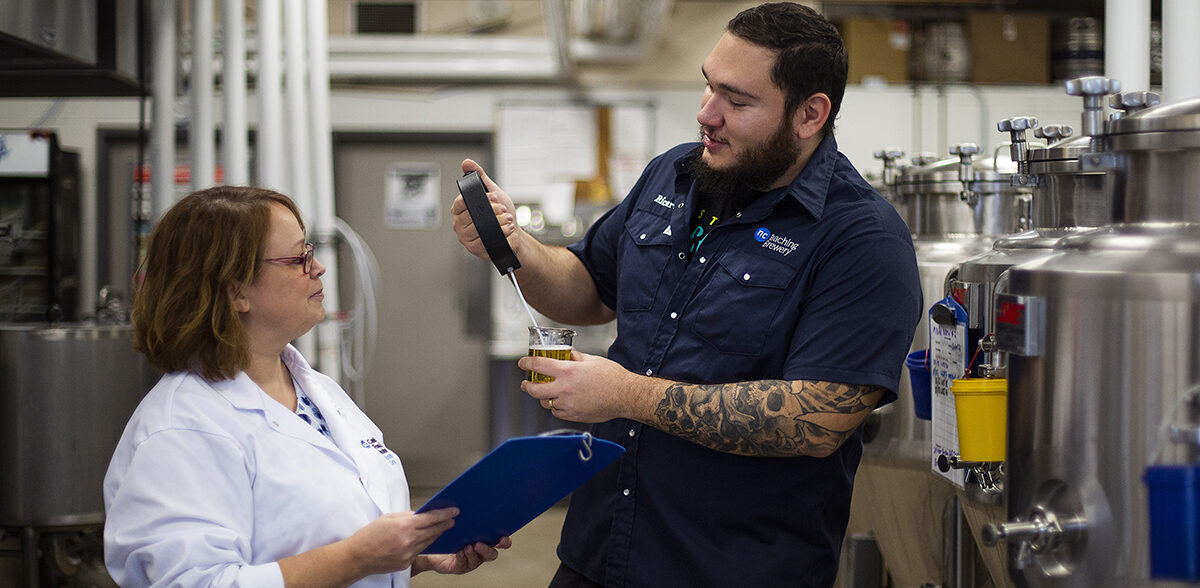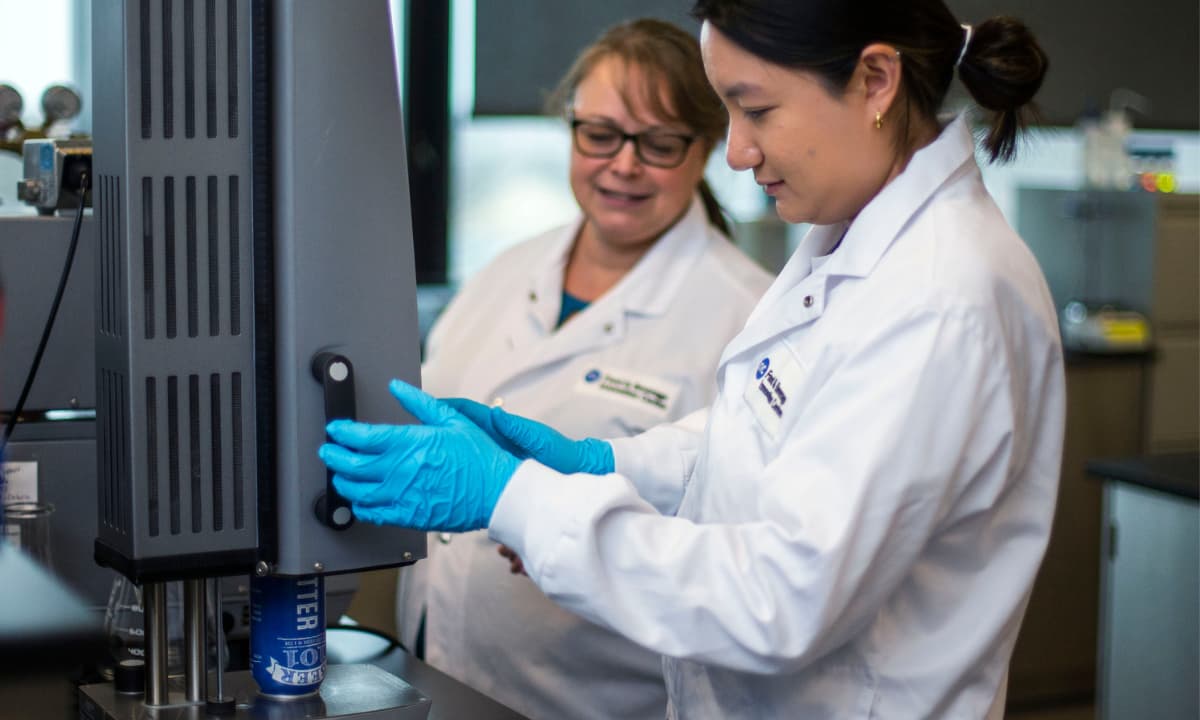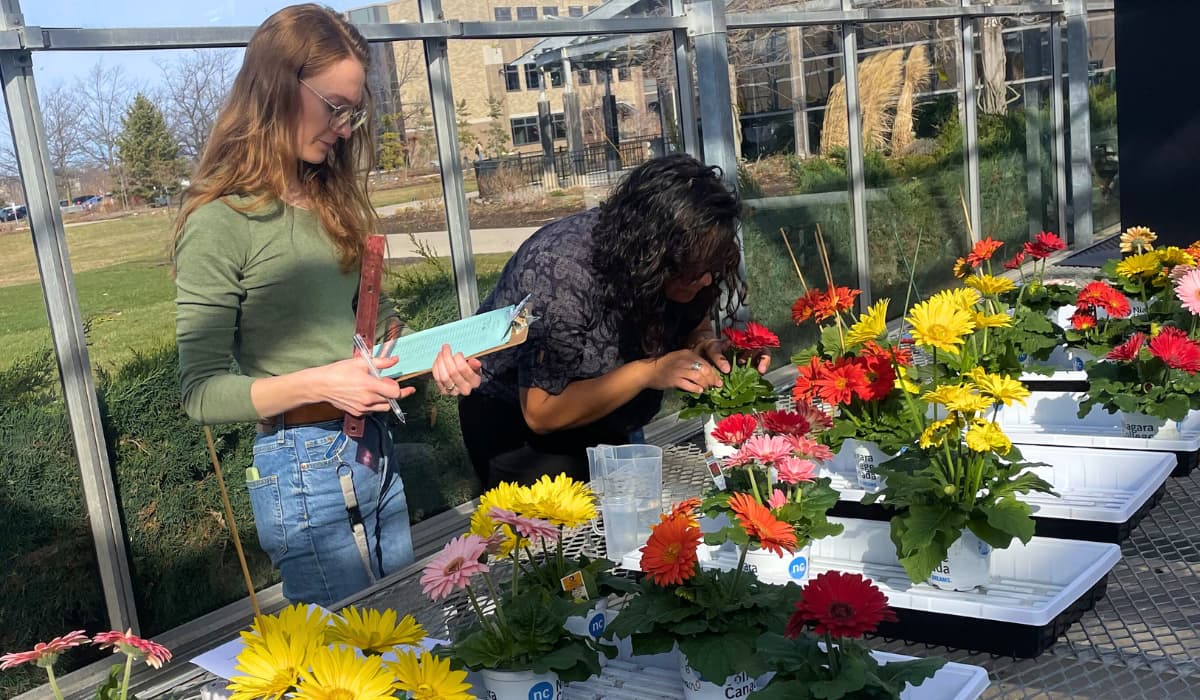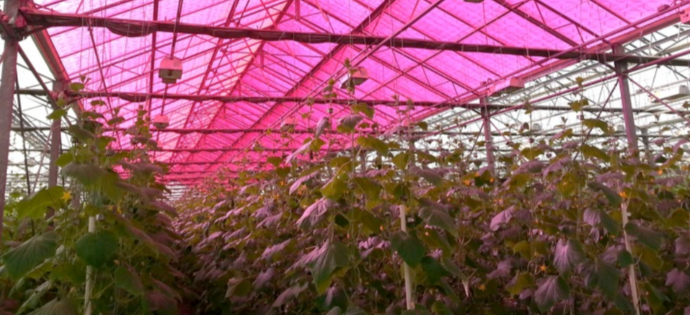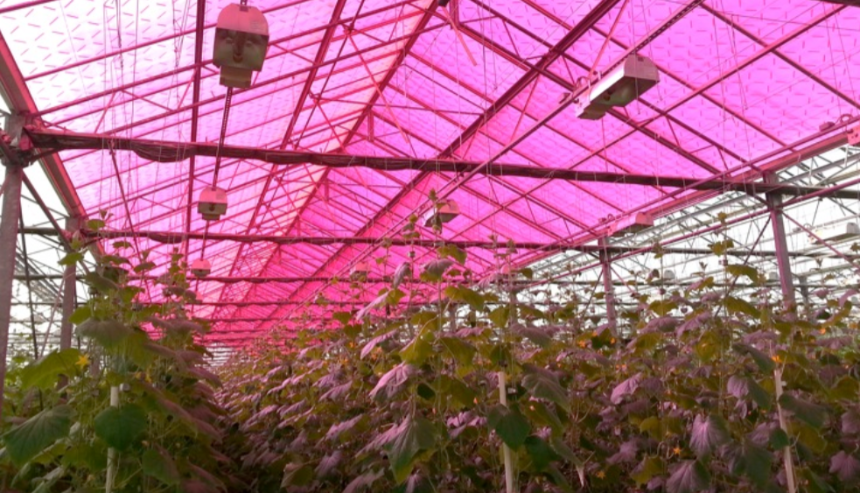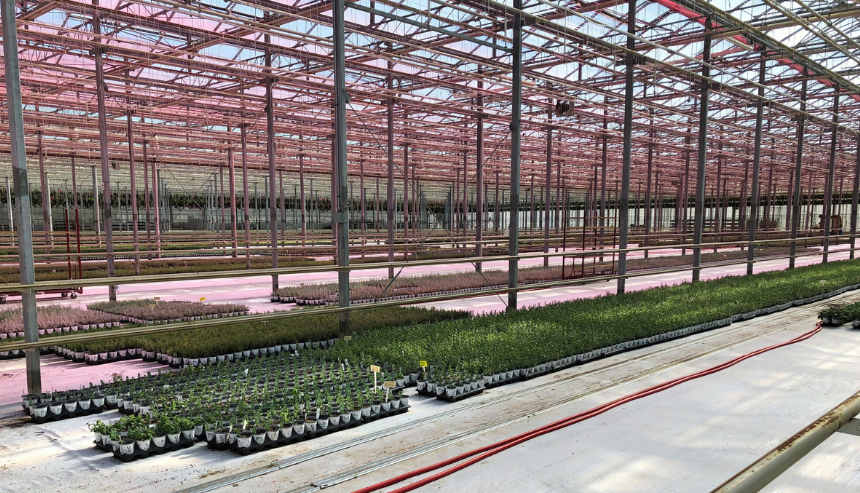Energy costs have always been a challenge for greenhouse operations. Yet for one Ontario innovator, their advanced renewable energy technology may present a new opportunity for growers to reduce electricity costs as well as carbon footprint, while increasing crop yields.
Heliene Inc. is a Sault Ste. Marie-based solar technology manufacturer working with Niagara College to trial herb crops grown under Heliene’s greenhouse integrated photovoltaic module (GIPV) panels. This trial is investigating the benefits of the specialized solar panels for a sustainable greenhouse industry, on the path to being carbon neutral.
The pilot project sees basil crops grown under innovative solar-power producing glass at Freeman Herbs greenhouse in Beamsville, and analyzed by student researchers from NC’s Greenhouse Technician program. It is the largest demonstration of the technology in North America.
The project started earlier this year, with Heliene installing its specialty solar panels to half an acre of Freeman Herbs production space. The GIPV panels will power the greenhouse as well as polarize the light to promote plant photosynthesis, says Heliene President Martin Pochtaruk.
To demonstrate its technology on a real-life commercial scale, Heliene needed a trusted and neutral third party for monitoring results and approached the team at the Agriculture & Environmental Technologies Innovation Centre at the College’s Research & Innovation division to provide a detailed analysis.
“There’s no one better than Niagara College in this specific area of applied research,” says Pochtaruk.
“The main intent is to reduce the footprint of greenhouses by offsetting their own power consumption through solar power generation, while using different solar module backsheet materials to “bend” the frequency of the light, to those areas of the light band-width that enhances photosynthesis,” explains Pochtaruk.
The panels are integrated into the actual roof, unlike traditional solar technologies. The light-polarizing backsheets serve to filter and convert green light to red light, which reportedly improves plant growth, and the photovoltaic cells are used to generate electricity.
Two different solar panel cell arrangements are under study for growing the herbs in addition to a control crop grown under conventional greenhouse glass. The project’s results will examine the energy benefits of the solar panels for other greenhouse businesses while identifying light-related issues and any crop deficiencies.
The trial is part of a course-based project led by NC Faculty Research Lead Derek Schulze, coordinator for the Greenhouse Technician program. He employs two Research Assistants – students from his program – to make weekly trips to take detailed measurements and obtain data.

